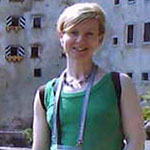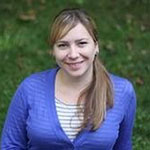On 8 September, the Teaching Statistics Special Interest Group held an invited session at the RSS 2021 Conference on Teaching statistics to non-specialists in a pandemic setting. The meeting was organised and chaired by Dr Margaret MacDougall, University of Edinburgh, with additional speakers, Professor Bill Browne, University of Bristol and Professor Mine Çetinkaya-Rundel, Duke University and R Studio Inc.
--------------------------------------------------------------------------
The Covid-19 pandemic has provided opportunities to critically review our approaches to teaching. This has included recognising and responding to the needs of on-screen learners. Correspondingly, opportunities have arisen for creativity and dialogue in avoiding learner fatigue while ensuring an optimal level of learner participation. This session allowed me to report on valuable long-term lessons learned in a pandemic setting for the teaching of statistics to medical students enrolled in intercalated honours degree courses at the University of Edinburgh. I was also able to celebrate the opening of doors of opportunity to develop statistical learning within the Edinburgh MBChB curriculum in response to research-informed learning needs.
 Under the title, 'Necessity as the mother of invention: Interactivity and partnership in the teaching of statistics to medical students', my talk pointed to a range of initiatives aimed at enhancing student-instructor relationships, including through development of better assessment experiences for students and use of per-session feedback from students, driven by the necessity of quality-assessing progress in real time in a new learning environment. A highlight signposted in this context was the opportunity to communicate the assessment initiative through rap under the auspices of AdvanceHE!
Under the title, 'Necessity as the mother of invention: Interactivity and partnership in the teaching of statistics to medical students', my talk pointed to a range of initiatives aimed at enhancing student-instructor relationships, including through development of better assessment experiences for students and use of per-session feedback from students, driven by the necessity of quality-assessing progress in real time in a new learning environment. A highlight signposted in this context was the opportunity to communicate the assessment initiative through rap under the auspices of AdvanceHE!
Download Margaret's presentation slides.
 From the different perspective of teaching statistics to Masters students in psychology and education at the University of Bristol, Bill delivered his talk, 'Teaching statistics to psychology and education Masters students: A blended learning approach'. Bill explored the rewards and challenges in shifting from a traditional to a hybrid learning approach in a pandemic setting. Hybrid learning models involved learners engaging with pre-recorded videos together with either live online sessions or face-to-face sessions. In sharing his experiences of preparation of recorded lectures, Bill highlighted his preferred choices of software (Free Cam for animated videos and OpenShot for video editing) but conceded that the requirement for captions presented challenges to the non-Welsh-speaking computerised translator!
From the different perspective of teaching statistics to Masters students in psychology and education at the University of Bristol, Bill delivered his talk, 'Teaching statistics to psychology and education Masters students: A blended learning approach'. Bill explored the rewards and challenges in shifting from a traditional to a hybrid learning approach in a pandemic setting. Hybrid learning models involved learners engaging with pre-recorded videos together with either live online sessions or face-to-face sessions. In sharing his experiences of preparation of recorded lectures, Bill highlighted his preferred choices of software (Free Cam for animated videos and OpenShot for video editing) but conceded that the requirement for captions presented challenges to the non-Welsh-speaking computerised translator!
While, in Bill's experience, online learning was well received, it was difficult to translate the positive online interactive instructor-student experiences into in-person learning experiences with other student groups under social distancing. This raises questions concerning the added value from using the latter approach for statistics teaching in a pandemic setting. While, as a further feature of hybrid learning, Bill’s cats, Olive and Peaches, were reputed to have made a guest appearance, they were unprepared to comment at the time of writing.
Download Bill's presentation slides.
 In her lively talk, 'Introduction to data science, for all, online', Mine presented initiatives for addressing a varied student audience in opening up an introductory data science course for all undergraduates at the University of Edinburgh. This included an exposition of live coding experiences and responding to impromptu student questions relating to imaginative coding tasks which kept Mine on her toes while enthusing the students! These and other imaginative learning approaches, including online data scraping from Covid-19 updates as a basis for data visualisation, helped in tackling the challenge of engaging students from a wide range of learning backgrounds with technologies such as R, RStudio, Git and GitHub without in-person support. While student learning did not involve a focus on statistics proper, Mine aimed to desensitise students to negative feelings about use of computing in their future academic learning through allowing playful activities, such as creation of the most ugly graph imaginable.
In her lively talk, 'Introduction to data science, for all, online', Mine presented initiatives for addressing a varied student audience in opening up an introductory data science course for all undergraduates at the University of Edinburgh. This included an exposition of live coding experiences and responding to impromptu student questions relating to imaginative coding tasks which kept Mine on her toes while enthusing the students! These and other imaginative learning approaches, including online data scraping from Covid-19 updates as a basis for data visualisation, helped in tackling the challenge of engaging students from a wide range of learning backgrounds with technologies such as R, RStudio, Git and GitHub without in-person support. While student learning did not involve a focus on statistics proper, Mine aimed to desensitise students to negative feelings about use of computing in their future academic learning through allowing playful activities, such as creation of the most ugly graph imaginable.
Download Mine's presentation slides.
After the talks, the speakers responded as a panel to questions shared from the audience by video. The online approach to delivery of the session ensured that questions could be received conveniently from outside the UK and from a friendly threesome on a sofa at the RSS conference venue. While the audience comprised about 15 people, through sharing the details of the session, we welcome the current opportunity for further asynchronous participation. Interested readers may wish to refer to the signposting of activities, resources and pedagogical literature within the included presentation files.
Author
Dr Margaret MacDougall is a medical statistician and researcher in education (senior lecturer) at the Usher Institute, University of Edinburgh Medical School.